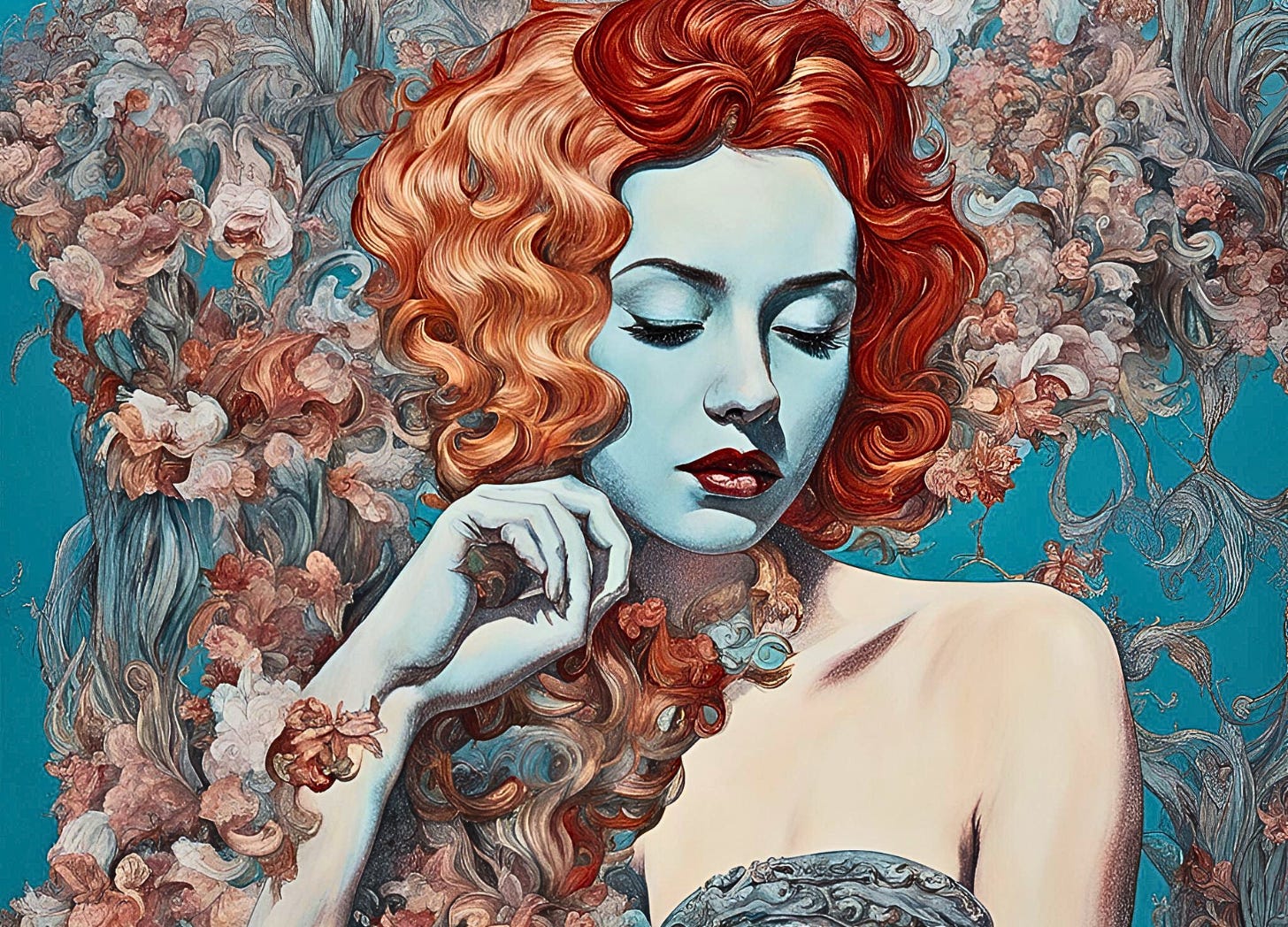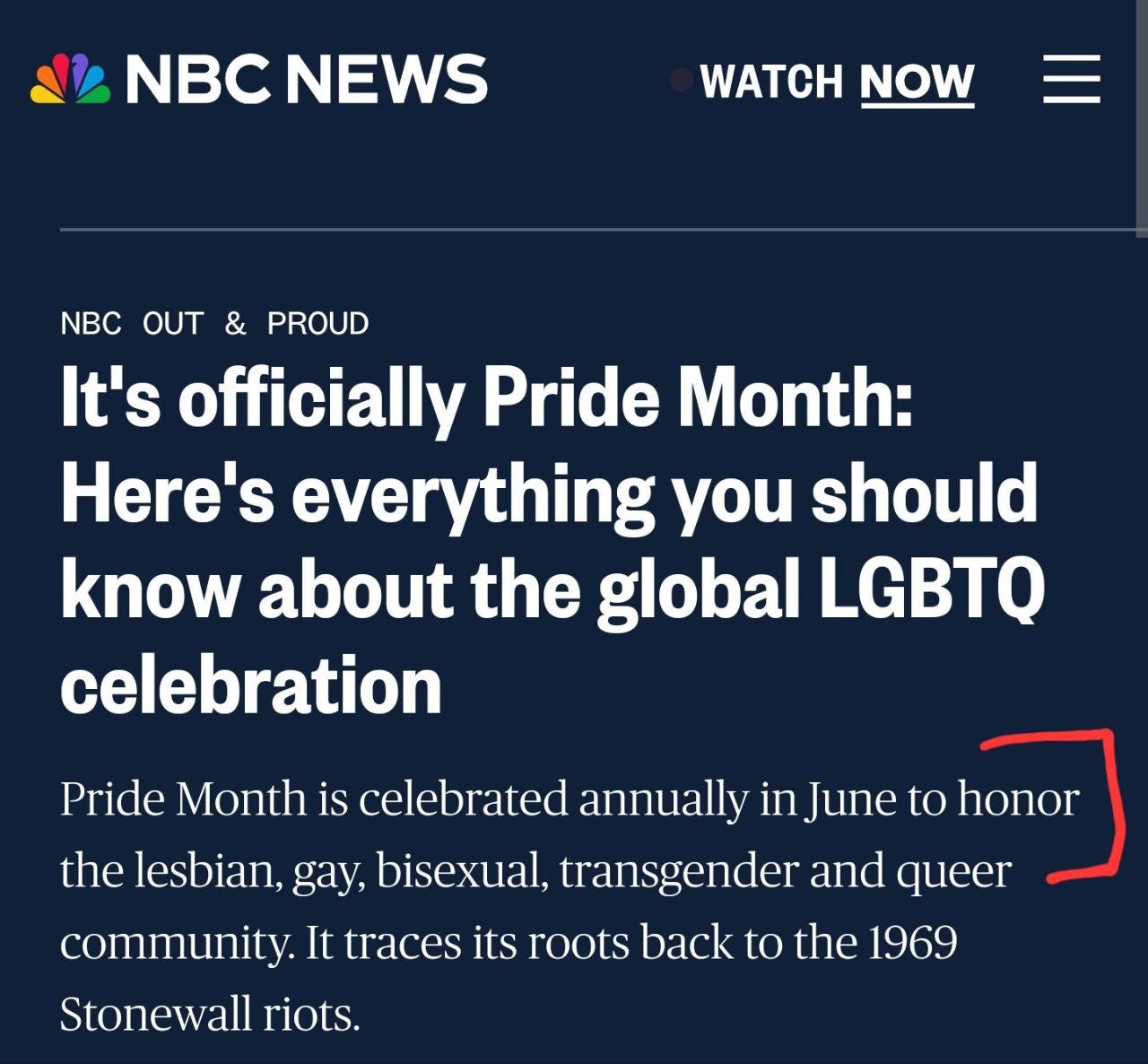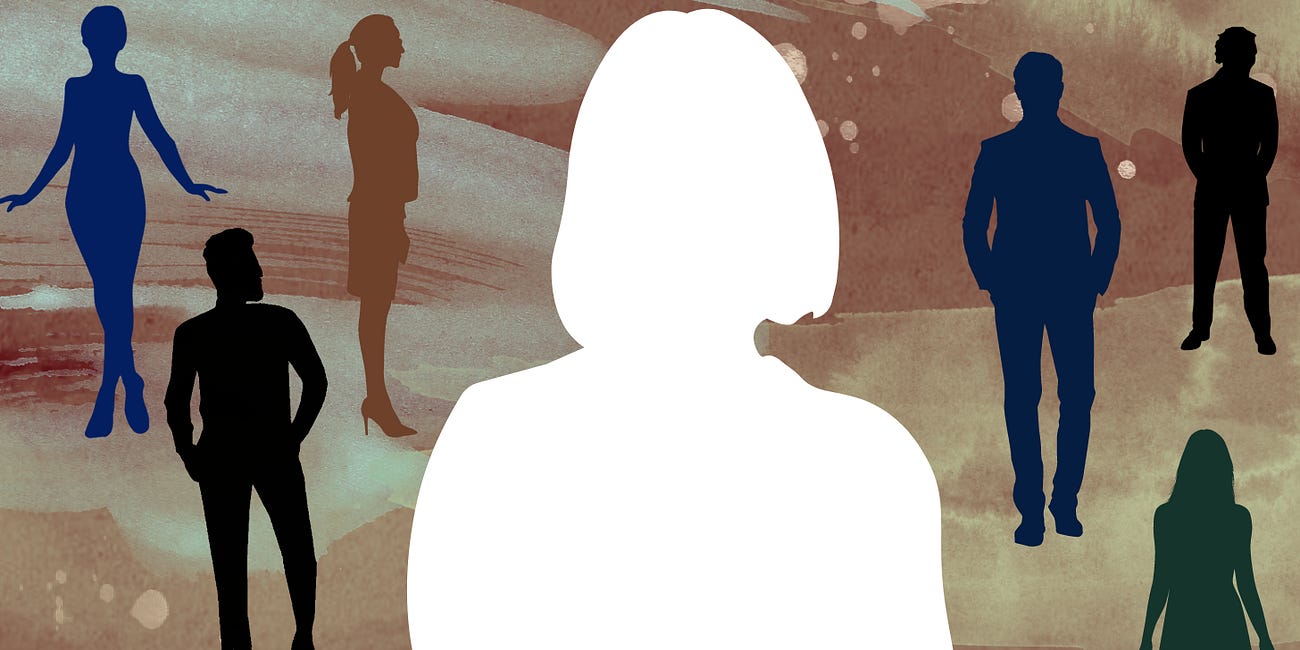The Sacred Importance We Place On “Being Ourselves”
We've become prisoners of our own identities.
Self-expression in contemporary society.
If you've read Francis Fukuyama's "Identity," there's a part where he talks about the transition from an outer life to the inner life. Fukuyama argues that the modern conception of identity and inner self emerged largely from the Protestant Reformation. Prior to this, in the medieval Catholic world, a person's identity was deeply bound to fixed social roles and the institutions of family, church, and their community.
The Reformation basically did four things in the way it completely changed how we relate to personal identity:
It gave each individual a direct relationship with God, rather than needing the church or an institution as an intermediary. This basically fostered a new kind of spiritual individualism.
It promoted the idea of Sola Scriptura, which encouraged individual interpretation of religious texts, and you know the issues that can arise with individual interpretation of ideas.
Then there was the emphasis on the "inner life" - Reformers like Luther and Calvin stressed inward spiritual struggles and introspection as paths to salvation over just outward acts.
During this period, identity began to focus more on one's inner experience, which was a significant shift. At that time, feudalism was also still the dominant social and economic system in Europe. People's lives and identities were largely predetermined by a rigid social hierarchy, leaving little room for social mobility or self-determination.
Even the ruling noble class, while having slightly more freedom to shape their individual identities, operated within the confines of the highly stratified feudal framework.
The Reformation brought about the "discovery of the intrinsic human self," - an inviolable inner identity. However, Fukuyama argues that this shift towards an individualistic inner self has certainly become pathological in modern times, also leading to a disconnection from sustainable sources of meaning and identity that are embedded in real communities and social roles.
It's worth noting also that during periods such as the Reformation, individuals were encouraged to critically examine their own beliefs and behaviours. This contributed to a strong and heightened sense of self-awareness in many people. However, this genuine self-reflection and self-awareness seem to be lacking nowadays in contemporary society. Instead, what we often see are performative, overly public displays of identity. It all seems like an act.
Identity no longer seems to be a personal or private journey of self-discovery. Take, for instance, the concept of "owning your sexuality." What was once a personal matter has evolved into a constant public declaration. Similarly, expressions of racial pride, such as being proud to be black, now seem to demand public acknowledgment, recognition, and participation. It’s as if these forms of pride are somehow invalidated without external approval and attention.
Questioning the Basis of Identity-Based Pride
And while we’re here, being proud of things like your race, gender and sexuality is very interesting. NBC featured an article earlier this month that mentioned that “pride month is a time to honour members of the LGBTQ community.”
Being honoured for things like your race, gender, and sexuality will always be odd. Honour is such a specific word. What achievement is there in these that deserves honour?
Then some might claim that it takes resilience and courage to be different, which is somewhat honourable.
But I argue otherwise. Being different is no longer as courageous as it once was, particularly in modern Western culture. Everyone today is fighting to be different, competing to be more outrageous than the other, competing to invent new, random (and sometimes empty) identities. So, perhaps the brave and courageous thing is just being a normal, regular person.
This of course doesn't mean if anyone is part of any community that they are abnormal. But everyone wants a story, and sometimes things seem forced and artificial. People are constantly fighting to be unique and to rebel against normalcy. They think normalcy is oppression. But it's okay to embrace being an ordinary, regular citizen in a world obsessed with chasing and manufacturing uniqueness.
Another major issue with this modern concept of pride tied to identity is the hypocrisy surrounding which identities are deemed worthy of pride. Being proud of your racial identity is acceptable but not if you’re white. Being proud of your sexuality or gender identity is welcomed but not if you’re a conservative.
The Seduction of Shameless Self-Indulgence
Some "be yourself" protests and parades raise legitimate questions. When looking at events such as the "slut walks" or seeing viral videos and photos of graphic content from some Pride events, one wonders whether the focus is truly on authentic self-expression and identity exploration. Instead, these displays often seem to promote the notion that embracing one's true self necessitates self-exposure and a complete abandonment of boundaries. Like the ultimate freedom is putting every single intimate, private detail of yourself on display for all the world to see.
What we're witnessing is a peculiar glorification of uninhibited self-indulgence, all marketed under the “noble” guise of discovering one's true, authentic self. There's a wild, hedonistic vibe to it all. It almost seems as though propriety, restraint, and dignity are obstacles to authenticity rather than valuable aspects of personal identity.
In contemporary society, "being yourself" often translates to shedding the healthy inhibitions that protect us from harmful consequences, whether to our mental and physical well-being or our reputations. And not only has this "be yourself" mantra emboldened moral degeneracy in numerous ways, but it also provides some form of self-righteous shield against any criticism. After all, how dare you judge someone for merely 'expressing themselves,' 'living their truth,' and joyfully exploring who they truly are?"
Real pride and confidence
Self-discovery is a valuable privilege in the modern world. However, there’s no need to constantly scream and shout about how proud one is of their identity. In fact, the more one feels compelled to proclaim their pride loudly, it often signifies insecurity. True confidence often manifests quietly. Those who are secure in themselves rarely find the need to repeatedly assert their identity to others. When someone frequently declares 'who they are,' it prompts the question: are they trying to convince others, or themselves?
The relentless public posturing of one's racial, sexual, or cultural identity as if it were a badge of honour is a key feature and flaw of modern identity politics. Those who are at peace with themselves don't constantly advertise which boxes they check off or feel the incessant need to broadcast their identities.
The reality is that many people today are experiencing an identity crisis or a crisis of meaning and purpose. There is a general sense of a lack of direction. In previous eras, despite the oppressiveness of rigid societal expectations, there was perhaps more prescribed structure and defined roles. While limiting, it provided a clear, if not narrow, path for deriving purpose and identity.
In today's world of increasing freedoms and choices, the obligation to forge one's own path can paradoxically breed confusion, anxiety and an eager attachment to superficial identities that promise belonging and fulfilment. It's possible that the labelling and vocal proclamation of identities represent an unconscious search for meaning.
The abundance of freedoms we now enjoy is unprecedented, but it seems to have created a new void - the weighty responsibility of self-actualisation and curating our own paths. We are indeed in the age of unfettered self expression, yet there are people who have never felt more lost, isolated, confused and imprisoned.
Living label-free and tribeless.
On my social media, you'll find "Tribeless" in my bio because I strongly believe identity labels are overly confining. The very thing we believe sets us free—the establishment of an “identity”—can actually trap and confound us. This becomes especially clear when we publicly attach labels, creating an expectation to maintain that identity. It's as if we're expected to continuously keep up appearances related to that identity, no matter where we go or what we do. Take, for instance, those who have made mental illness or personality disorders their entire identity, using it for content creation and securing brand deals. Do you think they would truly want to overcome these issues if they derive social or financial benefits from them?
The labels we embrace, while intended to express our uniqueness, can paradoxically constrain us, preventing us from exploring the full, complex, and nuanced range of who we are. This self-imposed limitation leads many to perform roles rather than live authentically - we essentially become prisoners of our own identities.
Ada is the Head of Content at The Equiano Project. Subscribe to The Equiano Project YouTube channel HERE.
You might also like:
The Type of White Normativity that Activists Conveniently Ignore
Originally published on Psychreg An article headline in The Guardian earlier this year boldly proclaimed, "Women of Bangladeshi and Pakistani heritage earn almost a third less than white British men." This type of headline is common in reports on racial, gender, and economic disparities, and as I read the article, I couldn't help but notice two recurring…











Great read especially about the current rage for 'selfies' (not just photos). I especially appreciate your proposition that 'What we're witnessing is a peculiar glorification of uninhibited self-indulgence' but, Ada AkpalaI, I refuse - don't want - to believe, tho' I can't prove it, that our ancestor homo sapiens didn't indulge in the deepest individual introspection. Great Socrates said at his trial "The unexamined life is not worth living"? Didn't Marcus Aurelius, another of many great classical thinkers, rediscovered in the Renaissance, leave us such reflections as “You have power over your mind - not outside events. Realize this, and you will find strength", “Dwell on the beauty of life. Watch the stars, and see yourself running with them“ and "The happiness of your life depends upon the quality of your thoughts". Were these long gone ancestors so very different from us? Sure, there are the people you describe 'imprisoned' in cults with restrictive social norms who at the arrival of unbidden personal thoughts swiftly regulate their right to them, unless in an exaggerated affirmative setting like a modern Pride Parade. Perhaps you're right that at different times in history self-reflection has been forbidden, allowed, encouraged and, as you point out, in these bizarre times, strenuously promoted as 'lived experience' - a unique path to truth that trumps objectivity, reason and scientific method; hence Goya's sketch "The Sleep of Reason brings forth Monsters".
A brilliant and profound essay. And, what's more, you're absolutely right! Thank you for sharing these thoughts :-)